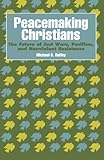Holy Monday Reflection
Today is often referred to as HOLY MONDAY. It is the day after Jesus triumphal entry into Jerusalem. It is the Monday before the LAST SUPPER…before Jesus’ arrest, trial, and crucifixion.
This is the day that Jesus cleansed the temple. Here is how The Gospel of Mark recounts this incident Mark 11:15-19 (ESV):
15 And they came to Jerusalem. And he entered the temple and began to drive out those who sold and those who bought in the temple, and he overturned the tables of the money-changers and the seats of those who sold pigeons. 16 And he would not allow anyone to carry anything through the temple. 17 And he was teaching them and saying to them, “Is it not written, ‘My house shall be called a house of prayer for all the nations’? But you have made it a den of robbers.” 18 And the chief priests and the scribes heard it and were seeking a way to destroy him, for they feared him, because all the crowd was astonished at his teaching. 19 And when evening came they went out of the city.
One of the interesting ethical stances of most Christian is an appeal to the way of Jesus, or the imitation of Christ. People point to the behavior of Jesus, and say something like: “What would Jesus do?” (WWJD?)
The particular question, (WWJD?) was popularized by Charles Sheldon’s 1896 book, In His Steps, which was subtitled “What Would Jesus Do?” During the 1990’s, this book experienced a revival of interest, spiking a cottage industry of sorts, around bracelets, t-shirts, hats, and other religious paraphernalia which sports a WWJD logo.
Sheldon, influenced by a brand of progressive Christian socialism, built his novel around a series of sermons he preached to his church in Topeka, Kansas. The challenge in those sermons and his novel was to as the question: “What Would Jesus Do” when facing any life decision or ethical challenge, and then live one’s life in response to that question.
For many Christians, the events of Holy Monday in the life of Jesus pose an interesting challenge. Taken out of their context (and while actually ignoring what the text says happen), this event has been used as an example from within the life of Jesus to support acts of suppose sacred violence for the accomplishment of some greater good. For example, in Holy Week 2017, people across social media and in many pulpits have referenced this text as supportive of President Donald Trump’s bombing of a Syrian military airport. 59 cruise missiles were deployed in response to the accusation that Syrian President Assad used chemical weapons against his own people.
Several people on one social media thread I followed referred to the story of Jesus cleansing the temple as justification for POTUS Trump bombing Syria. The question starting the thread was posed in similar fashion to that of Sheldon’s novel, but instead of asking: “What would Jesus do?” the inquiry was “Who would Jesus kill?”
So, let’s look at what actually happened in the text.
We begin by asking:
When did Jesus defend himself?
When did he advocate killing enemies?
Did Jesus advocate killing anyone?
When did Jesus act in a vengeful fashion?
When are we justified, based on the teaching and example of Jesus, in shooting back when fired upon?
These questions are central because ONLY during the events of Holy Week (where Jesus ultimately lays down his life in response to human violence) is there ANY act that might be argued as violence on Jesus’ past. That act is when he cleanse the temple. So, let’s look carefully at what happened and why!
Jesus approached the temple for prayer. The temple was created, according to the Hebrew scripture, to be a “house of prayer for all people.” The temple consisted of three chambers. The inner chamber was for the High Priest to offer sacrifices. The next chamber out was only for Jewish men to worship. The outer chamber/court was the place where Gentiles and women could worship (“house of prayer for all people”).
It was in this outer chamber where the money changers sat exchanging Greek money for Temple coinage which could then be used to purchase sacrificial animals. So, in the center of the sanctuary for women and Gentiles, a commerce center had been set up. Not very conducive for a “house of worship for all people,” now is it?
Jesus, seeing the exclusionary behavior on the part of the Temple hierarchy fashioned a whip, drove out the animals, and turned over the tables or the money-changers.
“My house shall be called a house of prayer for all the nations’? But you have made it a den of robbers.”
Jesus is reacting to the injustice that robbed the Temple of its purpose by denying Gentiles and women their place of worship and prayer.
Obviously, Jesus actions are not those of a Mr. Milquetoast sort of fellow. But non-violence in response to violence is not weakness. One of the bravest things a person can do is stand fast to his or her convictions without lashing back when slapped, instead “turning the other cheek” as Jesus instructs. As such, those who reject violence as a response to violence as not lacking in courage.
That said, the question is ultimately not about levels of courage, but whether Jesus’ cleansing of the temple justifies violence. The inquiry concerns what we are to do with this story – this one single story?
Was Jesus reacting violently to a violent attack on himself? NO! And this is confirmed repeatedly throughout his life, and especially during the events of Good Friday.
What Jesus was doing, however, was reacting against injustice perpetrated in the temple in the name of God.
Was Jesus doing physical harm to any single person? To that the text is unclear. Driving out animals and turning over tables, however, is certainly NOT the same as “calling fire down from heaven,” which Jesus clearly rejected as a response to Samaritans who failed to welcome his message. Nor can the whips and overturned tables be considered a justification for bombs and bullets.
What is clear is that this story, when held up to the light of the entirety of Jesus teachings and example, cannot be a justification for vengeance and violence. Especially when this event comes during the week when Jesus rejects retaliatory violence as he carries a cross to Golgotha.
The weight of the New Testament is clearly on the side of reacting non-violently to the threat or use of violence. Or, at the very least, the totality of Jesus teachings should lead us to perceive violence as an absolute last resort, to be engaged in using the most minimal of means possible, rather than as a knee-jerk reaction that can be explained as little more than vengeance.
Of course, the “last resort” argument is never really in play, especially for a nation steeped with the backing of the most sophisticated and advance armaments in human history. Our own nation (the USA) has the ability to (conservatively) destroy all life on planet earth some fifteen times over, something is seriously off kilter.
So, whom might Jesus drive away with a whip, turning over their money tables. Based on the text, a good argument could be made that he would drive out the entire military industrial complex, which trades money for weapons on a planet created for all humanity to abide.
Consider that single fact: The USA all by itself has the ability to destroy the entire planet fifteen times over. Bill Coffin once said, “One time over should be sufficient, but it is always nice to bounce the rubble a bit!”
WWJD?
We are to follow the ways of Jesus. He did not defend himself. He did not advocate the killing of enemies. He died with a prayer of forgiveness on his lips. He was the epitome of non-retaliation.
When I read the story of the cleansing of the temple in the light of the totality of Jesus’ life and witness, I cannot support vengeance and the death of enemies. Rather, my heartfelt desire must be to see all enemies redeemed by the sacrificial love, expressed by Jesus and through his Spirit.
Peacemaking Christians: The Future of Just Wars, Pacifism, and Nonviolent Resistance
by: Michael K. Duffey
publisher: Sheed & Ward, published: 1995-11-01
ASIN: 1556127642
EAN: 9781556127649
sales rank: 5550808
price: $7.92 (new), $1.56 (used)
In light of modern warfare and modern Catholic teaching, Duffey examines and assesses three Christian approaches to peace and war. Through extensive ethical analysis of the Gulf War, he examines the role of the churches to avert war, the use of economic sanctions and the aftereffects of the war in the Middle East. Duffey also evaluates the use of military force to overcome the ethnic conflicts in Bosnia and Somalia and recent successful resolutions.

Life in the Spirit: A Post-Constantinian and Trinitarian Account of the Christian Life (Pentecostals, Peacemaking, and Social Justice)
by: Andréa D. Snavely
publisher: Pickwick Publications, published: 2015-05-12
ASIN: 1625645139
EAN: 9781625645135
sales rank: 3182172
price: $23.80 (new), $14.30 (used)
What would the church look like if Christians saw their lives as constituted by the Spirit’s presence to live as Jesus lived? In a time when being ”led by the Spirit” is defined more by achieving the ”American Dream” than by Jesus’s life, answering this question rightly seems all the more critical for the church to survive in a culture increasingly hostile to Christianity. Building upon the work of post-Constantinians John Howard Yoder and Stanley Hauerwas and upon the Trinitarian Spirit-Christology of Leopoldo Sánchez, this account of the Christian life provides a framework for seeing one’s Christian life as one transformed by the Spirit to live in the resurrection reality of Jesus’s sonship with the Father in the Spirit. In the process, one will discover that, for Jesus, being led by the Spirit meant trusting his Father to the point of death on a cross, trusting God to resurrect him even if he did not save him. Should it mean the same for Christians today? If so, this would require the church to reimagine its ministries for the Spirit to work repentance and faith rather than simple agreement. For Christians living in the Spirit, their lives might look very different.








